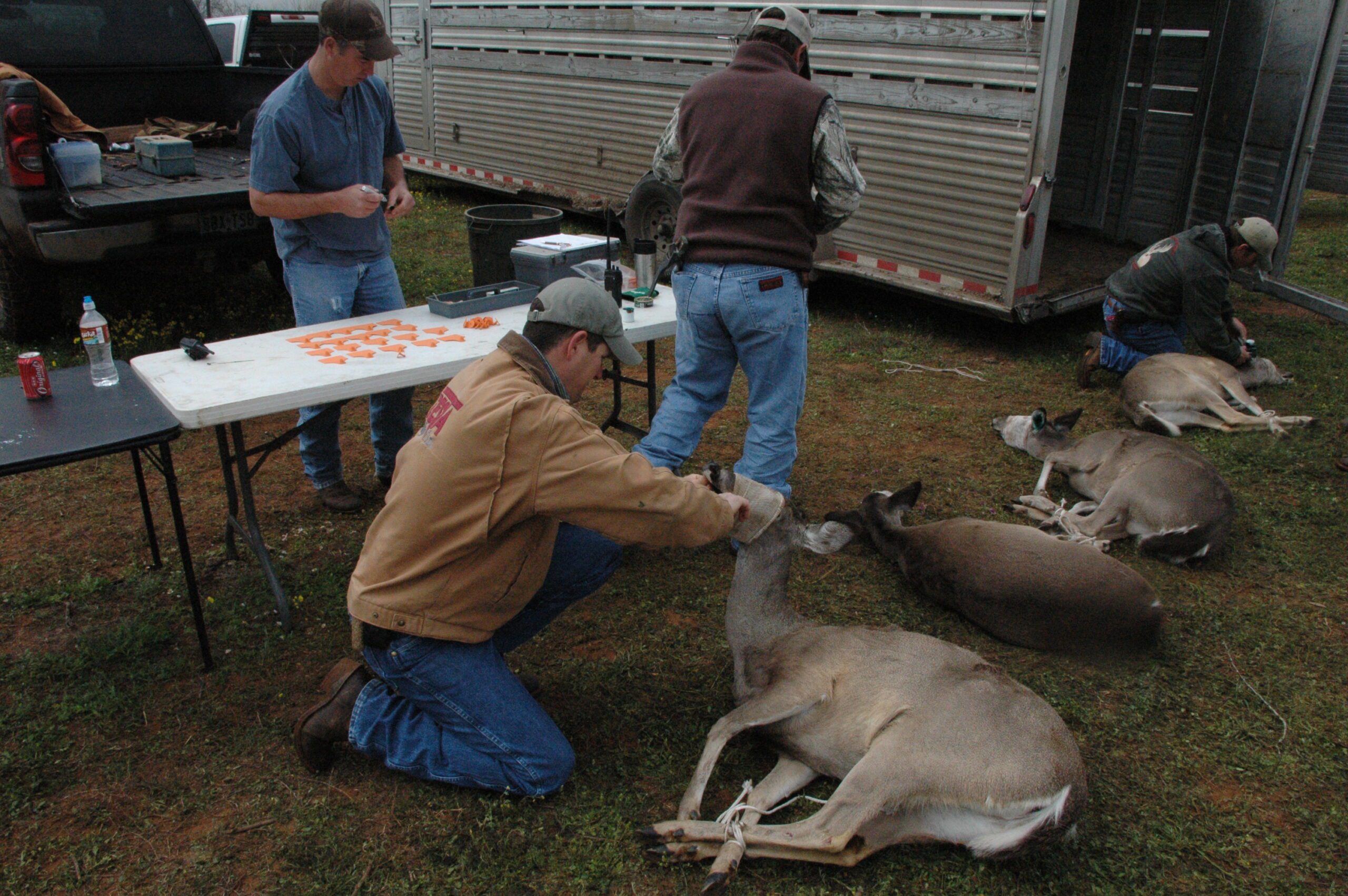Testing from MLD ranches to be considered
Story by Craig Nyhus, Lone Star Outdoor News
This story originally appeared in the 9/24 issue
The Texas Parks and Wildlife Commission approved opening proposals changing regulations on Trap, Transport and Transplant (TTT) and the emergency rules placed on deer breeders earlier this year for public comment and consideration.
Managed Lands Deer Program landowners may not be left out, though, as the commission asked Texas Parks and Wildlife Department to offer recommendations on requiring CWD testing on MLD properties for the 2022-2023 hunting season.
The proposals were outlined in an Special Work Session on CWD held Sept. 15.
Andy Schwartz, the executive director of the Texas Animal Health Commission, said the philosophy behind the proposed changes is to reduce the artificial movement of deer, which could spread the disease.
“When animals are moved artificially, it could be spread,” he said. “Movement presents some risk.”
Schwartz supported a moratorium on TTT and the continued live testing of all breeder deer before release.
Ryan Schoeneberg, a big game program specialist with TPWD, described the numbers of deer the department believes need to be testing to discover the disease at a 99 percent confidence rate.
“In a herd of 20 animals, you have to test all 20,” he said. “In a herd of 5,000, you need to test 89 to be 99 percent sure to find an infected animal.”
Schoeneberg said herds of free-ranging deer are identified by the state’s deer management units.
While sampling efforts in- creased beginning in 2016 from hunter-harvested deer and road-kill, Texas Deer Association’s Executive Director John True said there are 60 counties in the state with less than 10 tests each.
“It’s not being taken seriously on all fronts,” he said.
While Sarah Biedenharn, the president of Texas Wildlife Asso- ciation, said the organization sup- ports the proposed changes, including a temporary moratorium on TTT, Kevin Davis, the head of the Deer Breeders Corp, said the breeders have gone above and beyond in the effort to control the disease.
“Twenty years of history shows that deer breeders haven’t artificially moved it across the landscape,” he said.
DBC supported testing of 100 percent of mortalities and submitting samples for testing within 7 days, but not the antemortem testing requirements on all deer released.
“In 11,000 antemortem tests this year, there have been no positives,” he said.
Mitch Lockwood, the Big Game Program director for TPWD, outlined the proposed regulation changes.
Under the proposals, deer breeder submission of testing samples of mortalities would decrease from 14 to 7 days; testing of 100 percent of mortalities would be required; the age of an eligible mortality would decrease from 18 to 12 months; and the emergency requirement mandating antemortem (live) testing of all breeder deer before release would be maintained, although the time to submit testing samples would be increased from 6 to 8 months prior to release.
Mitch Lockwood, TPWD’s Big Game Program director, said the department spends $350,000 per year on testing diagnostics.
Davis said deer breeders spent $3.3 million this year, with the estimated cost of antemortem tests averaging $300 per deer.
“Most breeders are small, family owned businesses who can’t sustain the burden,” he said.
In the proposals, TTT permits would be suspended for the 2021- 2022 season.
“Staff plans to come back with recommendations prior to next year’s TTT season,” Lockwood said.
Although Commissioner Robert Patton Jr. requested that TTT suspension be removed from the proposals, the decision was made to include it to allow for public comment.
Lockwood also said the department would engage in an educational campaign encouraging hunters to leave carcasses at the site of harvest and will adjust the requirement on does harvested to comply with proof of sex requirements.
The commission agreed to publish the proposed rules in the Texas Register, which will then be open for public comment. The commission also ordered TPWD to provide recommendations on testing of MLD deer, especially in areas with testing gaps.
Schoeneberg told the commission 27 percent of hunter harvest samples tested came from MLD ranches. Lee Bass, a Commissioner Emeritus and the head of the White-tailed Deer Advisory Committee, said he feels the pause on TTT is prudent.
“It doesn’t make sense where there is already high data acquisition,” he said. “There may be areas to fill the gaps.”
The proposed rules will be considered at the commission’s November meeting.


